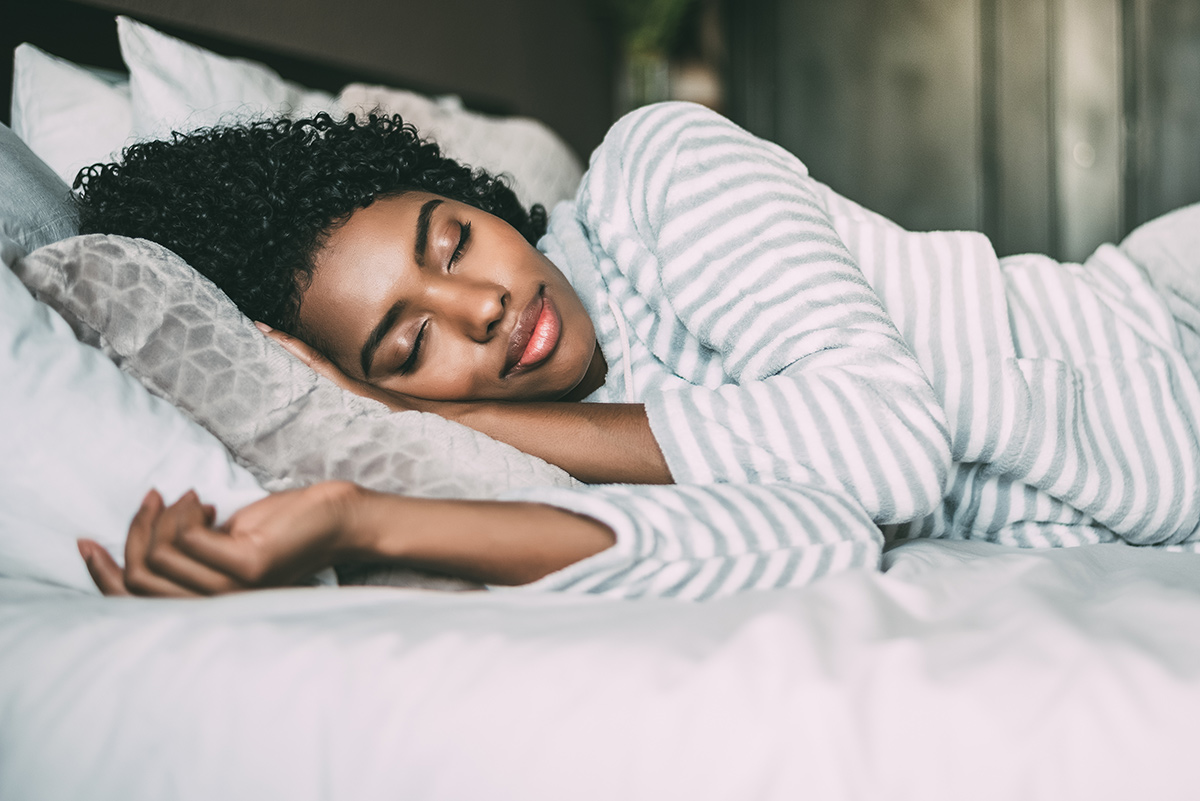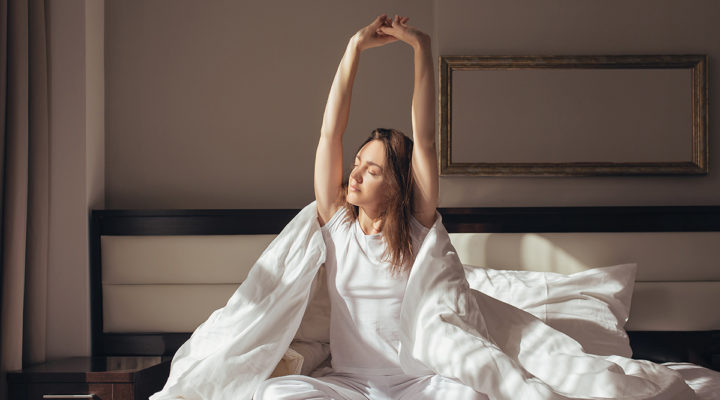Do We Need More Sleep in the Winter Months?

When the evenings draw in earlier, many of us feel the need to cancel our social plans and hibernate away.
Suddenly, it can feel harder to get out of bed when the alarm goes off in the morning. Sunrise gym sessions become far less appealing. The mid-afternoon tiredness slump can hit harder too, and we find ourselves over-caffeinating during the day.
So is seasonal tiredness all in your head? Or do we actually need to spend more time sleeping during the winter months? We asked experts to give us the lowdown on winter-related fatigue, along with tips to help us regain our get-up-and-go.

Why do we feel more tired than usual in the winter?
As the days shorten, our exhaustion can feel like it’s intensifying. Researchers believe that this may be linked to the fluctuating hormone levels in our bodies.
“Lack of sunlight causes your body to produce more of a sleep hormone called melatonin,” explains Dr Chun Tang, medical director at Pall Mall Medical. “Melatonin is produced by the pineal gland in your brain in response to darkness.” It signals that it’s time to hit the hay and rest.
As we’re exposed to fewer sunny days during the winter months, our brains compensate by releasing too much melatonin into the body. This flood of sleep-inducing hormones can leave us feeling more drowsy than usual.
As well as excess melatonin, counting down the hours until bedtime might also be a sign of Seasonal Affective Disorder (SAD) – a type of winter depression. Although scientists aren’t 100% sure, it’s thought that SAD is caused by a lack of sunlight disrupting the production of a hormone called serotonin – lower levels of which have been linked to depression. “As many as 1 in 15 people are said to suffer from it,” notes Tang.
In winter, we should also be on the lookout for anemia, a deficiency of healthy red blood cells needed to carry oxygen around the body. It’s important to get tiredness checked out with a GP if it persists for more than three weeks, to rule out anemia and any other health issues.
Do we need more sleep in the winter?
Essentially, yes. During the winter, your body can struggle to adjust to the chilly, gloomy days. “Cold temperatures and fewer daylight hours can cause your internal clock to be thrown off, causing your energy levels, sleeping patterns, and even your mood to shift. Many people need more sleep during the colder months to rebalance their circadian rhythm,” says Dr Don Grant, clinical lead at online pharmacy The Independent Pharmacy.
Another good reason to prioritise early nights over the local pub during the darker months? Less sick days. “A lack of sleep can have an impact on your immune system, which is not ideal during the winter when viral infections like the common cold or flu are prevalent,” says Grant. “By getting more deep sleep, you can allow your immune system to use more energy to fight infection and keep your body in a healthier state to fight common winter illnesses.”

What can we do to feel more rested in the winter?
The key to winter wellness is getting as much light as possible. “It’s a good idea to open your blinds or curtains as soon as you wake up to let as much natural daylight flood in,” says Tang. If your home doesn’t get much natural sunlight, you could invest in a sunrise lamp – an artificial light source designed to mimic natural dawn, encouraging the production of the mood-enhancing, feel-good hormone serotonin.
“At lunchtime try and take a brisk walk outdoors, and make sure there’s as much light and ventilation at work and at home,” Tang adds.
“Avoid trying to cram too many things into the shorter winter days too, as stress is a trigger for tiredness,” warns Tang. Instead, block out some time out to meditate, practise yoga and journal, to help foster mental balance. A grueling HIIT workout might be the last thing on your mind on a dark winter evening, but it will help you feel energised throughout the day and tired enough to sleep in the evenings.
Being underweight or overweight can play a key role in your energy levels and make you feel sleepy, adds Tang, so winter can be a good time for a healthy eating kick. “While it’s tempting to ditch salads and go for ‘comfort’ foods such as pasta, potatoes and bread, try to include plenty of fruit and vegetables in your meals,” Tang advises.
Finally, think about your supplement strategy. If you struggle to get the recommended eight hours of sleep per night, Form ZZZZ’s contain 5 HTP with calming amino acids to help support you into a restful slumber. “Taking vitamin D can be beneficial to your energy levels during the winter too,” says Tang, “but you should always check with your doctor before adding new vitamins to your regime.”


















